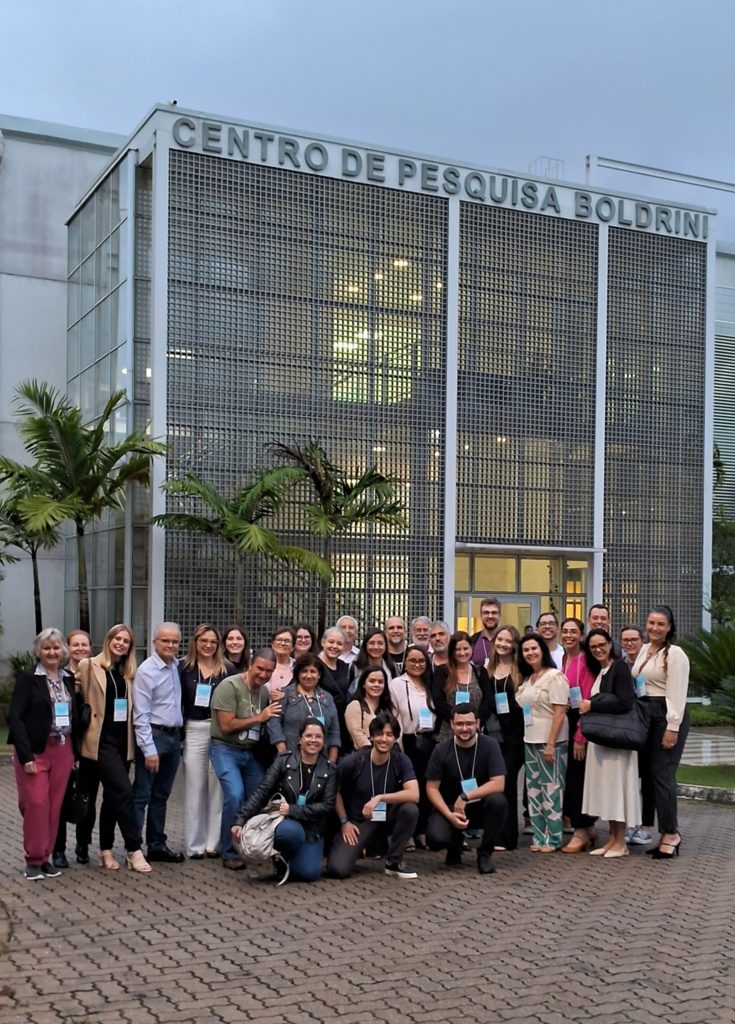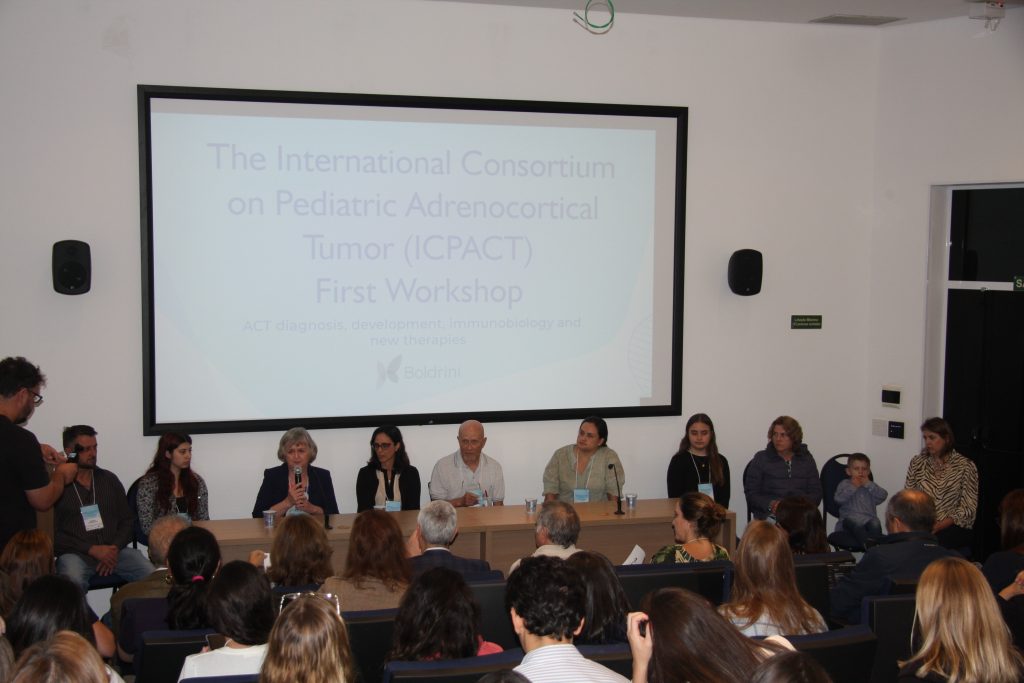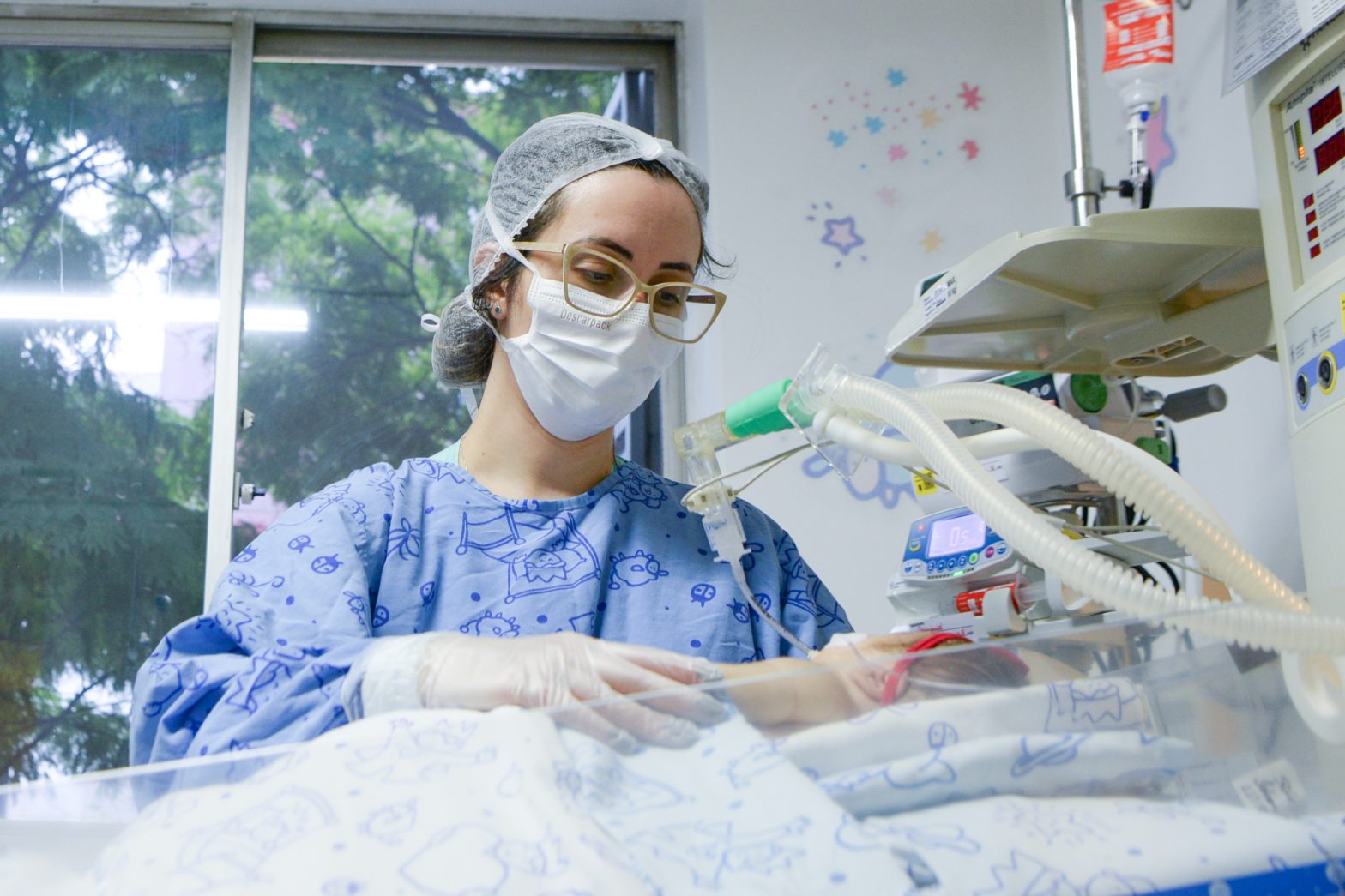Workshop brought together experts and families in the fight against rare pediatric tumor
Adrenocortical cancer has an extremely high incidence in Paraná and Santa Catarina states

The Pelé Pequeno Príncipe Research Institute held, in early November, the first workshop of the International Consortium on Pediatric Adrenocortical Tumor (ICPACT). The event brought together researchers and health professionals from several countries, students and families affected by the TP53 gene mutation, which is associated with pediatric adrenocortical tumor (ACT). This tumor is rare but has an extremely high incidence in Paraná and Santa Catarina states, with a rate approximately twenty times higher than the world average.
The scientific director of the Research Institute, Bonald Cavalcante de Figueiredo, is dedicated to studying this mutation and was the organizer of the event, held at the Boldrini Children’s Center in Campinas (São Paulo state). Figueiredo highlighted the importance of the meeting for the exchange of knowledge between professionals and families. “This workshop is an important milestone in the fight against TCA. The active participation of families not only enriched the scientific discussions, but also provided a deeper understanding of the needs of those who face this difficult condition,” he said.
Families
Among the most touching moments of the event were the testimonies of the families, who shared their stories of fighting cancer and the importance of early diagnosis. Maria Eduarda Woinarovicz, now 18 years old and a Psychology student, recalled her fight against the tumor, diagnosed when she was only three and a half years old. “Access to information and awareness about the types of cancer are essential. People need to know how to recognize the signs and have the appropriate support. I would like to help other families, just as mine was helped, through psychological support,” pointed out Maria Eduarda, who after overcoming the disease is dedicated to transforming her experience into something positive for others.
She also mentioned the profound impact her mother had on her overcoming: “My mother always said she wanted to see what I would become. Unfortunately, she is no longer here to see it, but I am sure she would be immensely proud of my path.” Maria Eduarda’s mother also had the TP53 gene mutation and died because of cancer.
The story of Roberto Woinarovicz, Maria Eduarda’s father, also highlighted the importance of the support provided during treatment. “The Pequeno Príncipe Hospital made all the difference in our journey. The speed of diagnosis and efficient treatment meant that, just a few days after surgery, she was already playing. The support provided by the medical team was essential,” he said, deeply moved emotionally.
Expansion of screening

Raul C. Ribeiro, researcher at St. Jude Children’s Research Hospital, reinforced the need for broader genetic screening in Brazil. “Early diagnosis not only saves lives, but also reduces costs for the health system and prevents prolonged suffering for families,” declared Ribeiro, explaining that detecting the TP53 mutation allows cancer to be prevented in its early stages, which is essential to improving prognosis.
According to physician Gabriela Caus Fernandes Luiz Canali, from Pequeno Príncipe Hospital, a specialist in pediatric oncology, collaboration between families and the medical community is essential to implement broader genetic screening protocols in the country, which could be a turning point in the treatment of children affected by the TP53 mutation. “The exchange of information between different countries and professionals is essential for advancing understanding and clinical practice, in addition to promoting greater awareness of the importance of early diagnosis, which can save lives,” said Gabriela.
Figueiredo, who has dedicated more than 28 years to studying ACT, mentioned advances in diagnosis and treatment, noting that the TP53 genetic mutation, identified in more than 90% of cases in Paraná and Santa Catarina, is one of the main focuses of the research. “Early detection, with genetic testing in the maternity ward, is essential to improve the chances of treatment and cure. This workshop was a unique opportunity to share the results of our research and further integrate the global scientific community,” explained.
Camila Daiggi, a pediatric oncologist at the Boldrini Center, also addressed the importance of early detection and genetic diagnosis. “Although adrenocortical tumor is rare, it is curable if diagnosed early. This workshop is essential to strengthen the network of professionals and institutions that work together to improve cure rates,” concluded Camila, emphasizing that collaboration between countries and research centers is crucial to effectively combat the disease.
More
Patient-centered care strategies reduced mortality from complicated pneumonia at Pequeno Príncipe
Brazil’s largest and most complete pediatric hospital also records a sepsis fatality rate of 6%, significantly lower than the Brazilian average
Pequeno Príncipe North: Our commitment to innovation in healthcare, teaching, and research for a future of health and life
Infrastructure works marked the first year of construction of the project that foresees the building of two hospitals, the headquarters of Pequeno Príncipe College and the Pelé Pequeno Príncipe Research Institute, a cultural center, and a botanical garden








